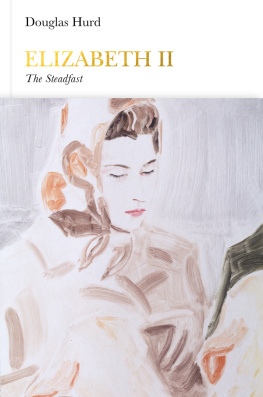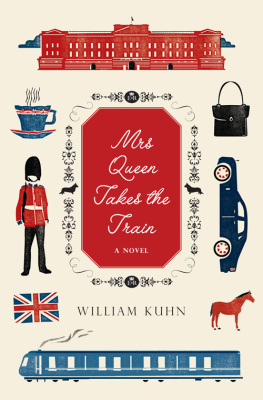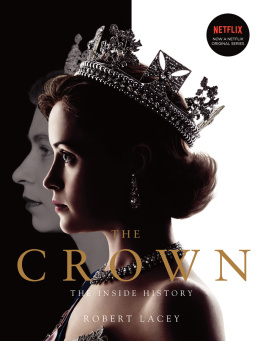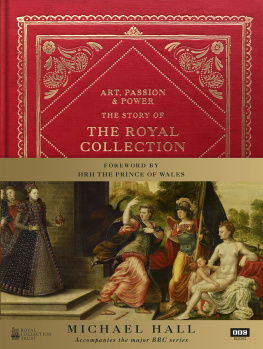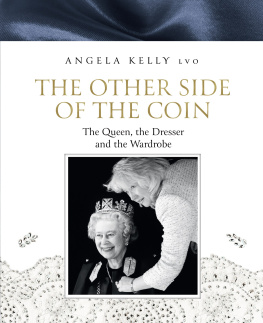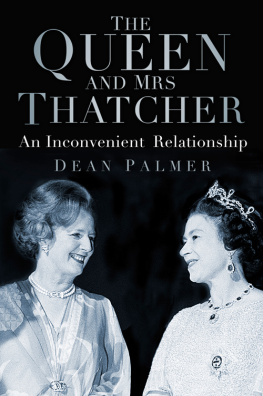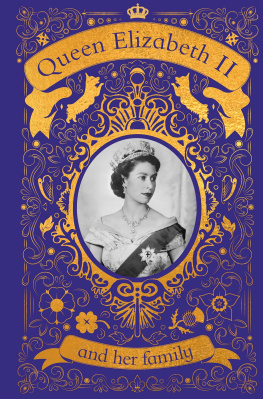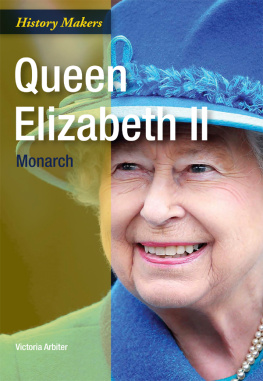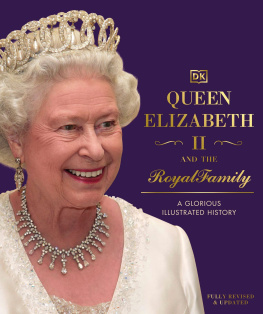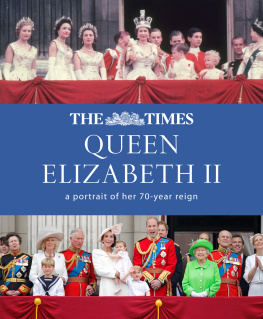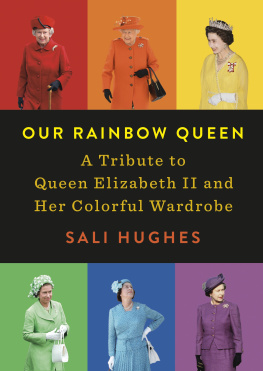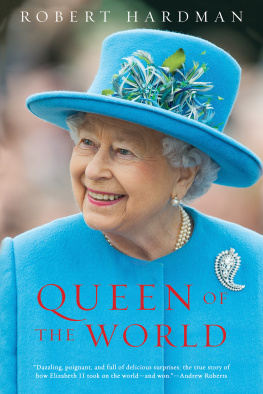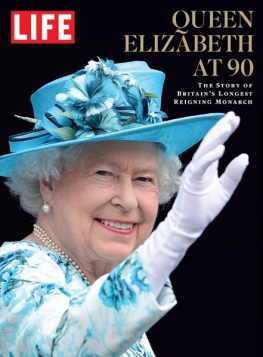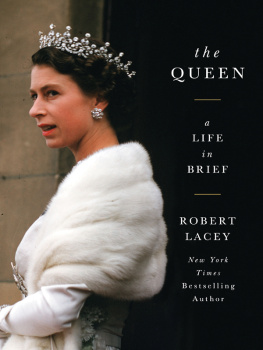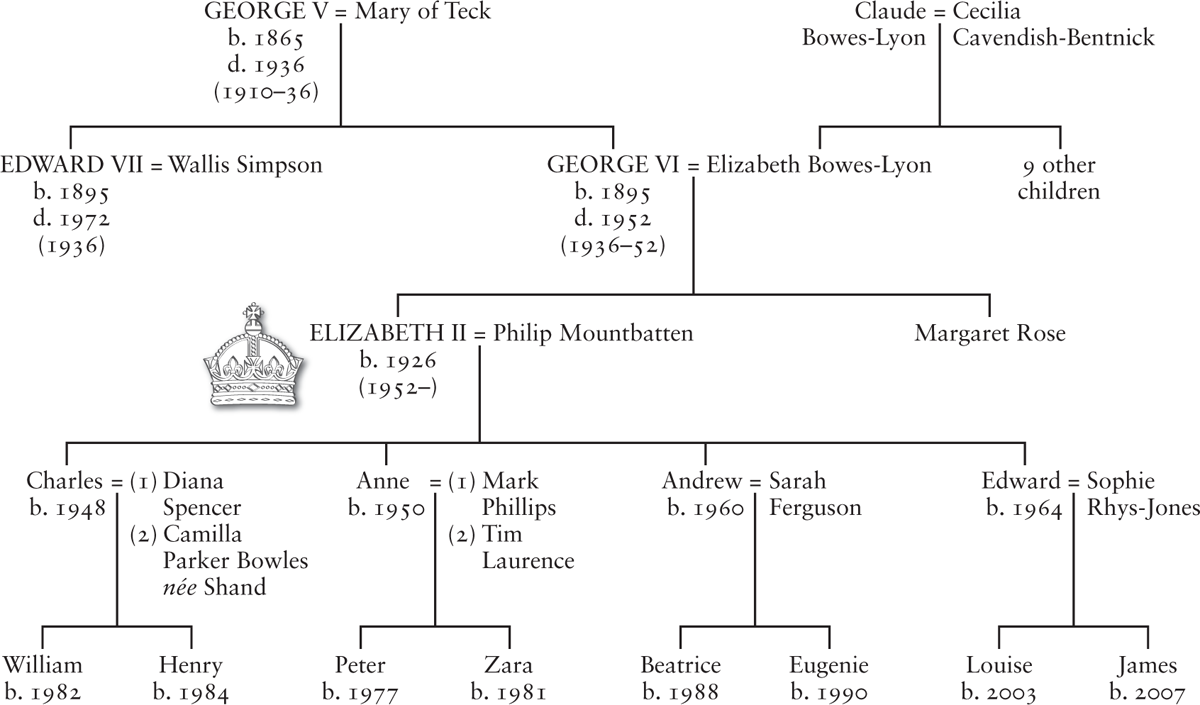Contents
Douglas Hurd
ELIZABETH II
The Steadfast
Penguin Monarchs
THE HOUSES OF WESSEX AND DENMARK
| Athelstan | Tom Holland |
| Aethelred the Unready | Richard Abels |
| Cnut | Ryan Lavelle |
| Edward the Confessor | James Campbell |
THE HOUSES OF NORMANDY, BLOIS AND ANJOU
| William I | Marc Morris |
| William II | John Gillingham |
| Henry I | Edmund King |
| Stephen | Carl Watkins |
| Henry II | Richard Barber |
| Richard I | Thomas Asbridge |
| John | Nicholas Vincent |
THE HOUSE OF PLANTAGENET
| Henry III | Stephen Church |
| Edward I | Andy King |
| Edward II | Christopher Given-Wilson |
| Edward III | Jonathan Sumption |
| Richard II | Laura Ashe |
THE HOUSES OF LANCASTER AND YORK
| Henry IV | Catherine Nall |
| Henry V | Anne Curry |
| Henry VI | James Ross |
| Edward IV | A. J. Pollard |
| Edward V | Thomas Penn |
| Richard III | Rosemary Horrox |
THE HOUSE OF TUDOR
| Henry VII | Sean Cunningham |
| Henry VIII | John Guy |
| Edward VI | Stephen Alford |
| Mary I | John Edwards |
| Elizabeth I | Helen Castor |
THE HOUSE OF STUART
| James I | Thomas Cogswell |
| Charles I | Mark Kishlansky |
| [Cromwell | David Horspool] |
| Charles II | Clare Jackson |
| James II | David Womersley |
| William III & Mary II | Jonathan Keates |
| Anne | Richard Hewlings |
THE HOUSE OF HANOVER
| George I | Tim Blanning |
| George II | Norman Davies |
| George III | Amanda Foreman |
| George IV | Stella Tillyard |
| William IV | Roger Knight |
| Victoria | Jane Ridley |
THE HOUSES OF SAXE-COBURG & GOTHA AND WINDSOR
| Edward VII | Richard Davenport-Hines |
| George V | David Cannadine |
| Edward VIII | Piers Brendon |
| George VI | Philip Ziegler |
| Elizabeth II | Douglas Hurd |
Preface
Over the last ninety years, the world has changed more rapidly than at any time in history. When my grandmother the Queen was born in 1926, the wounds of the Great War were still healing, but few would imagine how soon they would be reopened. The confidence of the previous century had morphed into uncertainty and many worried as they still do about the challenge presented to our communities by rapid technological and social change.
After almost ninety years, we find ourselves in a world that has changed dramatically, almost beyond recognition from the world that the Queen was born into, but where the role of charity, family, duty and compassion perseveres. I think I speak for my generation when I say that the example and continuity provided by the Queen is not only very rare among leaders but a great source of pride and reassurance. Time and again, quietly and modestly, the Queen has shown us all that we can confidently embrace the future without compromising the things that are important.
From a personal point of view, I am privileged to witness the private side of the Queen, as a grandmother and great-grandmother. The Queens kindness and sense of humour, her innate sense of calm and perspective, and her love of family and home are all attributes I experience first-hand. I should add that no mention of the Queen is complete without paying tribute to my grandfather Prince Philip, who has devoted his life to supporting her.
All of us who will inherit the legacy of my grandmothers reign and generation need to do all we can to celebrate and learn from her story. Speaking for myself, I am privileged to have the Queen as a model for a life of service to the public.
HRH Prince William, Duke of Cambridge, 2015
1
Lilibet
The Minister of State was ill at ease. He had only been in the job for three weeks and did not know how the message he carried would be received. The Queen was busy writing at her desk; she glanced up as he approached. A message from the King of Moroccos Chamberlain, the Minister said. The King has changed his plan for this evening: he is now going to sleep at Fez instead of Casablanca, and asks if you could very kindly change the time of your dinner on Britannia so that it starts at 10 p.m. instead of 9 p.m. I see; the Queen returned to her writing, then called her Private Secretary. She discussed with him the details of that days programme. The Minister of State stood, shifting from one foot to the other, conscious that on the deck outside the Kings Chamberlain was waiting for a response.
Having had time to reflect, the Queen gave her reply: Please explain to the King that unfortunately we cannot alter the time of tonights dinner because at least fifty people have been invited at the earlier time. But I shall entirely understand if the King arrives a little late.
And so it was. The King of Morocco reached the Royal Yacht more than an hour late in a thoroughly bad temper, accompanied by three princes who had not been invited to the dinner. The Queen and Prince Philip coaxed the King back into a sunny mood and by the next morning, the last of this state visit, the atmosphere was all sunshine, smiles and the exchange of gifts.
This was the first and the stormiest of my overseas expeditions with Her Majesty. In her company, I visited Russia, France, the United States, South Africa and the Channel Islands. On shore as Home Secretary I took part in several royal ceremonies. Each bishop of the Church of England has to take an oath of allegiance to the Queen, kneeling on a footstool in front of her, with the Home Secretary in attendance. A venturesome bishop once suggested to me that the time had come to bring this oath up to date, for example by removing reference to the Bishop of Rome as a person having no jurisdiction in this our realm of England. I took careful note of his suggestion, thought about it, and concluded that such a change would bring hornets buzzing around my head from several directions. I thanked the bishop; no action was taken. So far as I know that sleeping dog sleeps on.
Several years later, as Foreign Secretary, I was quite often brought into company with the Queen. These occasions were by their nature fleeting. The Queen is a very private person and I certainly would not claim any privileged access to her thoughts or inner feelings, nor am I qualified to produce a definitive account of the constitutional significance of her reign. There will be others who will feel able to venture yet again on the details of the Queens family life, and others who can analyse her reign as part of the long evolution of the British monarchy. This book is rather an attempt to blend those two approaches to describe something of the Queens reign as it appeared to one of her ministers, and tentatively to offer some thoughts for the future.

